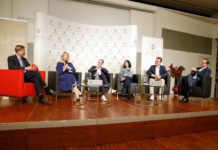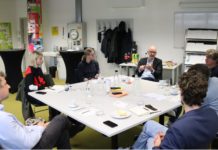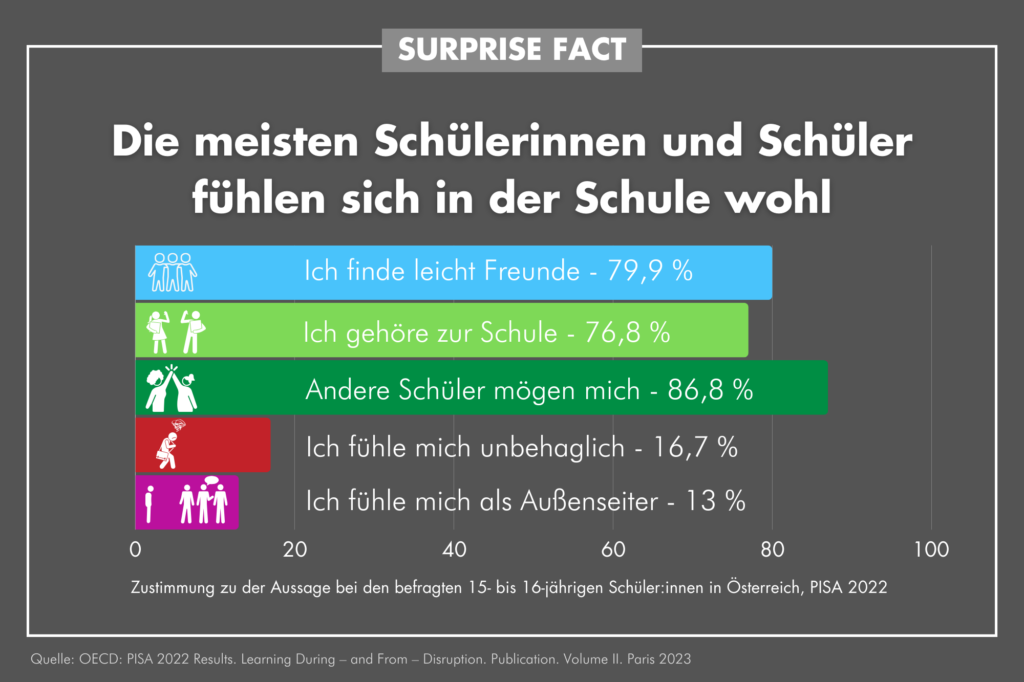After the book from John Palfrey and Urs Gasser [1]
Digital Natives, children who were born into and raised in the digital world and a metaphor to invite people on a journey and engage in a debate about the promises and limitations, opportunities and challenges, potential benefits and possible downsides of the evolving global network that we call cyberspace. This conversation among parents, teachers, coaches, and citizens — among people who care about the future — should continue, across generations and boundaries.
What’s so good being born digital?
„The central concept according to John Palfrey „is the extent to which young people have a much greater ability to shape the culture in which they are growing up. Power dynamics are shifting in many, though not all, contexts to favour the individual and the nimble, small, ad hoc group against the large, slow-moving institution.
In what areas in particular can Digital Natives make a real difference?
All Digital Natives, the author John Palfrey met in many places around the world, shared the commitment to making the world a better place. „The spirit of innovation, entrepreneurship and caring for society at large that we„ve seen in certain young people in our own backyards — in Western Europe and the United States — is alive and well in cultures that span the globe.”
John is also convinced that there is enormous talent in this generation entering the workforce; they will be innovative, productive employees if managed well: „Listen to these Digital Natives. Invite them into your company, either virtually or in the flesh. Hire some of them. They are the future, like it or not, and they have some great ideas.”
They can show the world what they can do together, using technologies in creative ways to make new things possible and to solve problems through collective action. Digital Natives have an enormous role to play in the online creativity and piracy debates. If they are regularly in the role of creators, they will come to respect the intellectual property rights of others over time — as they will have developed rights of their own — and to understand the power of sharing certain rights with others for the greater good. And they„ll lead the way to sustainable business models that reward creators for their efforts while preserving the interests of the public at large.
Lawmaking due to challenges in cyberspace
John worries that the promise of what„s possible will be overshadowed by a few truly horrible acts that happen to be mediated through digital technologies. He worries also about the gap in access, literacy, and participation. „The digital ‘haves” need to realize that there are digital ‘have-nots” in every culture, and that it matters.”
Digital Natives face challenges in cyperspace when it comes to identity formation, privacy, and safety; Digital Natives need to develop the skills to know what kind of information about themselves to share with whom, and in what context. Here, says the author Urs Gasser „[…] the role of law is very limited. Indeed education- and technology-based approaches are often much better suited to make a contribution to problem solving.” She suggests that the answer to the question ‘What is the role of law when shaping the future of the internet?” parents, teachers, or coaches of Digital Natives need to elaborate and answer together. We should not delegate it simply to our senators or the executive branch. „Lawmaking in the digital age, too, is a shared responsibility, especially when it comes to the future of our children” emphasises Urs Gasser.
Suggestions for parents and teachers
Parents and educators have to care about the digital lives and lifestyles of their kids and they need to improve their knowledge of digital technologies too. They should engage in a very open and informal discussion with their kids about the services they are using, about their favourite websites, about the ways in which they communicate with their friends, whether they often use Wikipedia, etc. „We should also show honest interest in their digital experiences, wherever and whenever they might have had them”, say Urs Gasser. Parents can let kids show them online how things work, what their favourite sites look like, etc. They should not hesitate to intervene if they learn about issues that their kids experience online and with which they are not comfortable. Teachers and parents should not treat the ‘two worlds” (‘real world” and ‘online world”) as separate worlds just because they are more familiar with one of them.
[1] Born digital — Understanding the first generation of Digital Natives
by John Palfrey and Urs Gasser, Basic Books, New York, 2008





